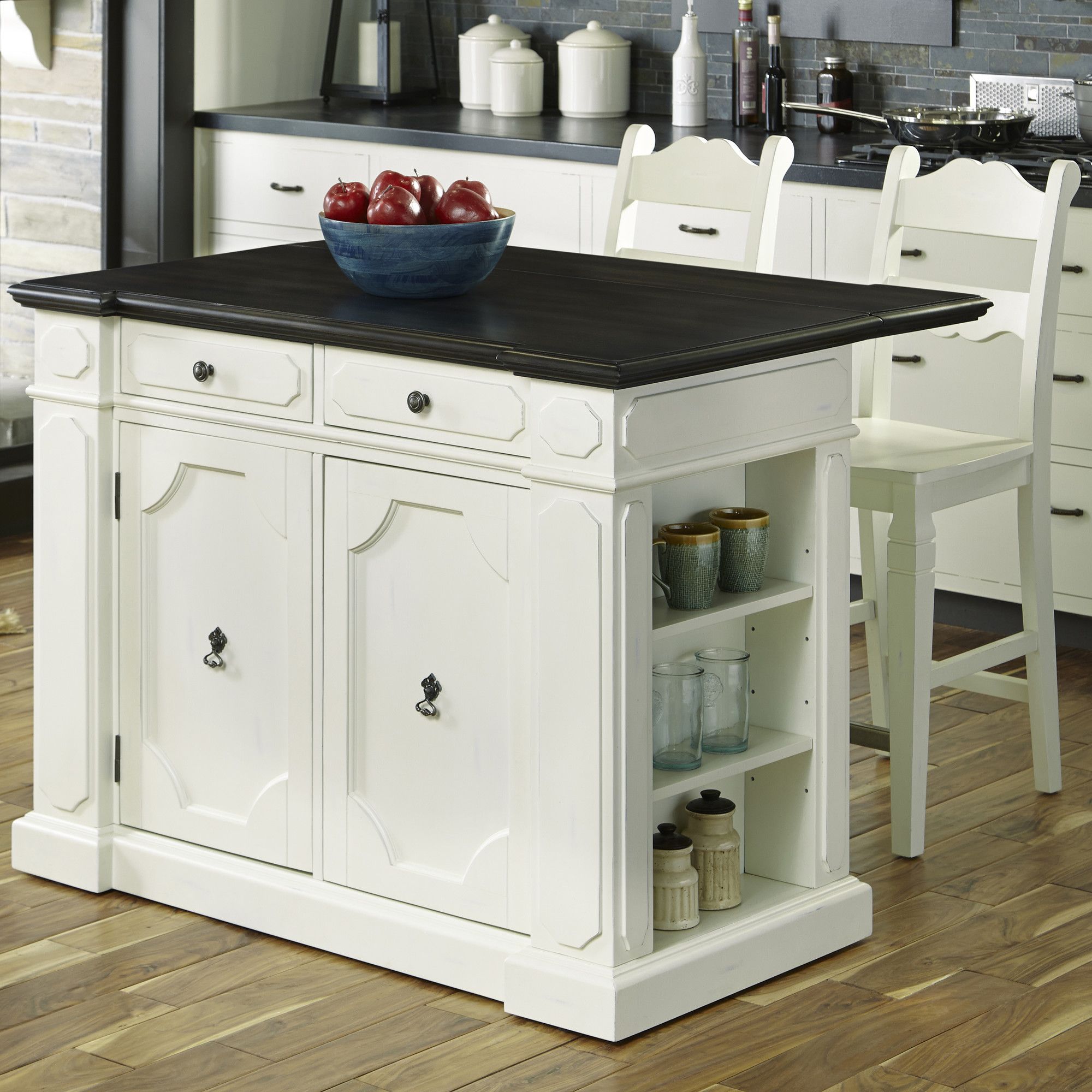Elevate your kitchen with the timeless elegance and practicality of a white kitchen island. This comprehensive guide explores various styles, materials, and design inspirations to help you create a stunning focal point that complements your culinary haven. Whether you prefer a rustic farmhouse aesthetic or a sleek modern vibe, discover how a white kitchen island can transform your space.
Designing Your Dream Island
White kitchen islands possess a unique ability to brighten a space, enhance functionality, and serve as the heart of your kitchen. They offer a versatile foundation for various design styles, making them a popular choice for homeowners. Let’s explore the possibilities!
Styles to Inspire
Choosing the right style for your white kitchen island is a crucial step in defining your kitchen’s character. Here are some popular styles to consider:
-
Farmhouse Chic: This style evokes warmth and a lived-in feel, often incorporating natural wood tones, distressed finishes, and simple lines. It creates a relaxed atmosphere perfect for family gatherings.
-
Modern Minimalism: Characterized by clean lines and sleek surfaces, this style frequently utilizes materials like stainless steel or quartz for a minimalist aesthetic that prioritizes functionality.
-
Timeless Traditional: This style embodies classic elegance with ornate details, decorative molding, and intricate carvings. It adds sophistication and old-world charm to your kitchen.
-
Rustic Warmth: If you’re drawn to natural materials and an organic feel, this style often showcases reclaimed wood with natural textures, creating a cozy and inviting atmosphere.
Materials: Balancing Aesthetics and Durability
Selecting the right material is essential for both the appearance and longevity of your island. Each option offers a unique blend of pros and cons:
| Material | Pros | Cons |
|---|---|---|
| Wood | Warm, inviting, affordable, can be refinished | May require more maintenance, susceptible to scratches |
| Granite | Durable, heat-resistant, diverse colors/patterns | Can be expensive, may require sealing |
| Marble | Luxurious, elegant | Prone to staining and etching, requires careful maintenance |
| Quartz | Durable, low-maintenance, wide color range | Can be expensive |
| Stainless Steel | Modern, durable, easy to clean | Can show fingerprints and scratches |
| Butcher Block | Warm, inviting, affordable | Requires regular oiling and maintenance |
Design Touches: Personalizing Your Island
Now comes the exciting part – adding personal touches that make your island truly unique:
-
Countertop Contrast: A contrasting countertop, such as dark granite or rich butcher block, can create a stunning focal point and add visual interest.
-
Open Shelving: Display your favorite cookbooks, stylish dishes, or decorative items on open shelves to add personality and a sense of airiness.
-
Integrated Power Outlets: Conveniently power small appliances directly on the island with integrated outlets, eliminating tangled cords.
-
Pendant Lighting: Enhance the ambiance and provide task lighting with pendant lights hung above the island.
-
Seating Area: Incorporate a seating area, such as a breakfast bar or dining space, to make your island the central hub of your kitchen.
Size and Shape Considerations
Practical considerations like size and shape are crucial for optimizing your island’s functionality:
-
Island Size: Ensure the island’s size is proportionate to your kitchen. A large island in a small kitchen can feel overwhelming, while a small island in a large kitchen might get lost. Careful measurement and consideration of intended use are key.
-
Island Shape: While rectangular islands are common, explore other shapes like L-shaped (for separating kitchen and dining areas) or circular (for encouraging conversation and flow).
Choosing the Perfect Island Color for a White Kitchen
A white kitchen provides a versatile backdrop, allowing for a wide range of island color choices. The right color can transform your space, adding depth, personality, and visual appeal.
Contrasting Colors: For a dramatic focal point, consider colors like black, navy blue, or deep green. These shades create a striking contrast against the white cabinets, adding depth and sophistication.
Complementary Colors: If you prefer a more harmonious look, opt for soft blues, greens, or light grays. These colors create a serene and cohesive feel, enhancing the airy atmosphere of a white kitchen.
Bold Colors: Inject energy and vibrancy with bright yellows, reds, or oranges. These bold choices are perfect for those who love a playful and lively kitchen.
Wood Tones: Natural wood islands bring warmth and texture, complementing both traditional and modern white kitchens. They offer a versatile option that can create a rustic, traditional, or contemporary look depending on the type of wood and finish.
Consider Materials and Lighting: The island countertop material and lighting play crucial roles in enhancing the chosen color. Marble, granite, butcher block, and other materials contribute to the overall aesthetic. Proper lighting highlights the island’s color and impact.
| Island Color | Style | Feeling it Creates |
|---|---|---|
| Black | Modern, Classic | Dramatic, Sophisticated |
| Navy Blue | Classic, Coastal | Serene, Grounded |
| Deep Green | Traditional, Earthy | Natural, Calming |
| Soft Blue | Coastal, Farmhouse | Tranquil, Airy |
| Light Gray | Modern, Minimalist | Clean, Sophisticated |
| Bright Yellow | Modern, Playful | Energetic, Cheerful |
| Vibrant Red | Bold, Eclectic | Lively, Passionate |
| Natural Wood | Rustic, Traditional | Warm, Inviting |
| Painted Wood | Versatile, Modern | Customizable, Stylish |
| Marble | Luxurious, Modern | Elegant, Refined |
| Concrete | Industrial, Modern | Edgy, Urban |
Ultimately, the ideal island color depends on your personal preferences and desired style. Experiment with different options to find the perfect fit. Creating mood boards with color swatches and materials can help visualize the final result.
The Cost of a Kitchen Island: Buy vs. Build
Adding a kitchen island is a valuable investment, but the decision to buy or build depends on your budget, skills, and time constraints.
Buying a Prefabricated Island: This offers a quick and relatively affordable option, with prices typically ranging from $800 to $2,500 for installation. Stock cabinets can range from $100 to $400 per linear foot installed. While customization is limited, prefabricated islands are convenient and readily available in various sizes, shapes, and finishes.
Building a Custom Island: This provides ultimate customization and allows you to integrate features like sinks, dishwashers, and cooktops. However, custom builds are significantly more expensive, typically costing between $3,000 and $10,000 (or more with high-end features). This option requires more time, planning, and potentially professional labor.
DIY Island: For the most budget-conscious and hands-on approach, building your own island offers maximum control over design and cost. The total cost depends on the chosen materials, which could make this the cheapest option. However, DIY requires significant time, tools, skills, and careful planning to avoid costly mistakes.
| Feature | Pre-built | Custom-Built | DIY |
|---|---|---|---|
| Upfront Cost | Lower | Higher | Potentially Lowest |
| Time Investment | Lower | Higher | Highest |
| Customization | Limited | High | Highest |
| Installation | Easier | More Complex | Varies with Skill |
Considering Resale Value and Sustainability: While custom-built islands may offer greater resale value, a well-maintained prefabricated island can be equally appealing. Choosing eco-friendly materials for both options adds a layer of sustainability to your decision.
Are White Kitchens Still Trendy?
The all-white kitchen trend is evolving. While the stark, all-white-everything look might be declining in popularity, white itself remains a timeless and adaptable choice.
The Shift: Designers are moving away from sterile, all-white spaces and embracing warmer, more personalized kitchens. This involves incorporating natural materials like wood and stone, adding pops of color, and mixing textures for visual interest.
Timeless Adaptability: White kitchens offer a blank canvas that can be easily updated with accessories, paint, and hardware. This adaptability ensures their enduring appeal, allowing homeowners to refresh their kitchens without major renovations.
Expert Opinions: While some experts, like real estate broker Lori Levine Harris, suggest that all-white kitchens are on their way out, due to a desire for more color and personality, others maintain that white kitchens are eternally stylish. The key lies in balancing the classic appeal of white with contemporary elements and personalized touches.
By considering these factors and exploring various design possibilities, you can create a white kitchen island that perfectly complements your style and enhances your culinary space. For a pristine and modern look, consider incorporating a white kitchen counter to complete your kitchen’s transformation.
- Pontoon Boat Seat Covers: The Ultimate Guide to Protection & Buying - April 17, 2025
- Covers for Pipework: A Complete Guide to Materials, Installation & More - April 17, 2025
- Dog Patio Door Inserts: A Comprehensive Guide to Choosing & Installing - April 17, 2025










